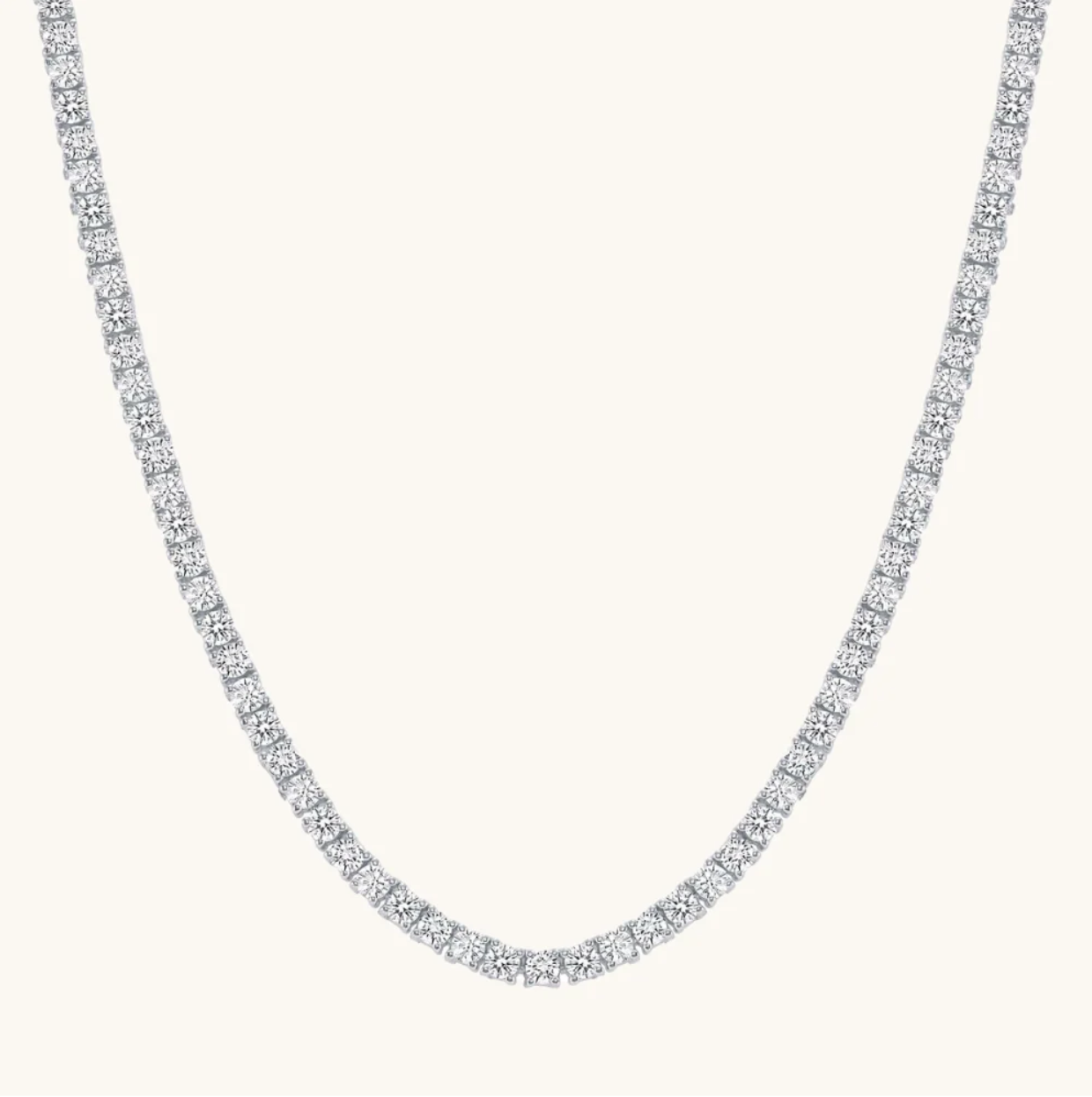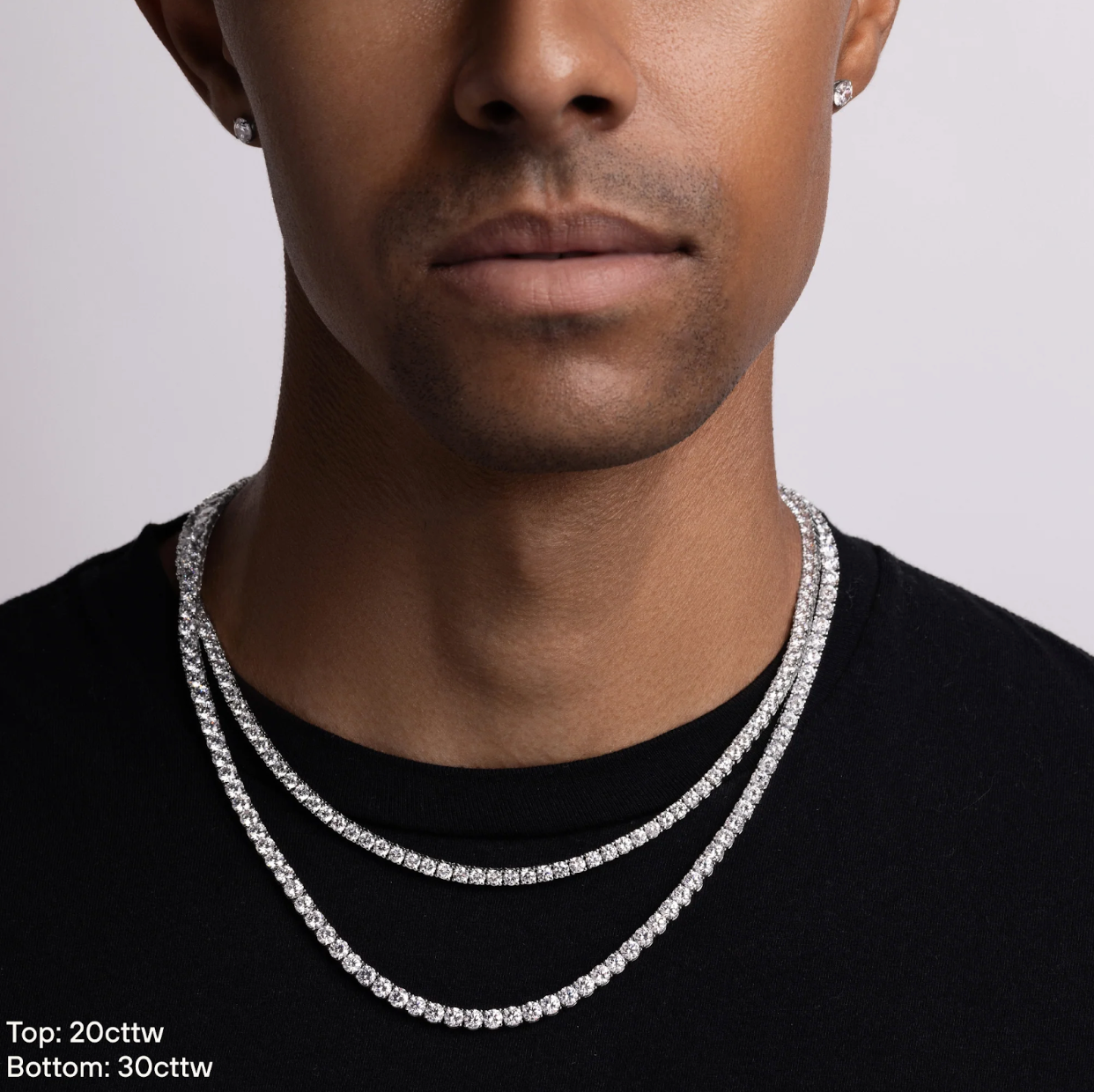
These numbers are important and have a meaning; they’re not just a description. But do you know what the difference is between the two? 14K and 18K gold have very different metal compositions that you may not be aware of. Along with the difference in the amount of gold it contains, there are also differences in strength, color, and price, so let’s compare 14k vs 18k gold!
14K Gold Characteristics & Features
- Contains approximately 58% pure gold content
- Mixed with other metals and alloys (copper, zinc, silver, nickel)
- Warm yellow, warm white, or pinker rose gold
- Less expensive (approximately 20% cheaper on average) than 18k
- Stronger than 18k gold
14K Gold Composition
14K gold contains approximately 58% gold, so the remainder of the composition of the piece of jewelry will contain metals alloys such as copper, zinc, silver, and nickel. Nickel is a common skin irritant that many people are allergic to. People with a nickel allergy can break out in a rash or start itching when their skin comes in contact with nickel, making 14K gold jewelry more sensitive to the skin than 18K gold jewelry.
14K Gold Color
The color of 14K gold is less vivid than 18K gold. Yellow and white 14K gold is more warm than bright, and 14K rose gold is pinker than peach. If you’re looking for a vivid yellow gold color or a bright white gold jewelry piece, then you’ll likely want to choose 18K gold. Rose gold is pinker than peach when it’s 14K gold, so you’ll need to decide which shade of rose gold you like most and find a piece of jewelry that reflects your taste.
14K Gold Cost
The average difference between the cost of 14K gold and 18K gold is around 20%. Of course, this can change depending on the jeweler you use, but this is the average trend seen between the two. Because of this, a 14K gold piece of jewelry will be slightly more affordable than 18K gold. Just keep in mind that 14K gold contains less pure gold, which means it has a higher percentage of additional metals like nickel.
14K Gold Durability
If you’re looking for the stronger gold, 14K gold is the winner. Pure gold is extremely soft, so the less gold that a gold engagement ring or other piece of jewelry has, the stronger it will be. Because 14K gold contains around 58% pure gold, it gets its strength from supplemental metals like copper, zinc, and nickel. This makes 14K gold less susceptible to scratches, dents, and bending. If you lead an active lifestyle, 14K gold would be your best choice.
18K Gold Characteristics & Features:
- Contains 75% pure gold content
- Remaining metal content comes from zinc, copper, nickel, and silver
- Bright yellow, bright white, and peachier rose gold
- More expensive (approximately 20% on average) than 14K gold
- Softer than 14K gold
18K Gold Composition
The gold content of 18K gold is 75%. This requires fewer metals and alloys to be mixed with the gold to make it 18K. If you have sensitive skin, you will be less likely to react to 18K gold than you would 14K gold because of the lower amount of nickel in the gold, making 18K gold the best choice between the two.
18K Gold Color
The color of 18K gold is also related to its gold content. Because there is a higher gold content in 18K gold, the color of the gold will be brighter than 14K gold. Yellow gold engagement rings and white gold engagement rings will be brighter, while rose gold will have a peachier color.
18K Gold Cost
The cost of 18K gold is more expensive because it contains higher gold content. On average, 18K gold will cost around 20% more than 14K gold. If you have a nickel or metal allergy or you have sensitive skin, we recommend paying a little more for 18K gold so that you are only exposed to a small number of additional alloys in the gold.
18K Gold Durability
If you have an active lifestyle or struggle to prevent your rings from becoming scratched, you may want to choose 14K gold vs 18k gold as it is the stronger of the two. 18K gold is softer than 14K gold, so it is more likely to become scratched, dented, or misshapen.





Share:
Gold Wedding Rings: Mix and Match Tips - Happy Jewelers
How Are Rings Made